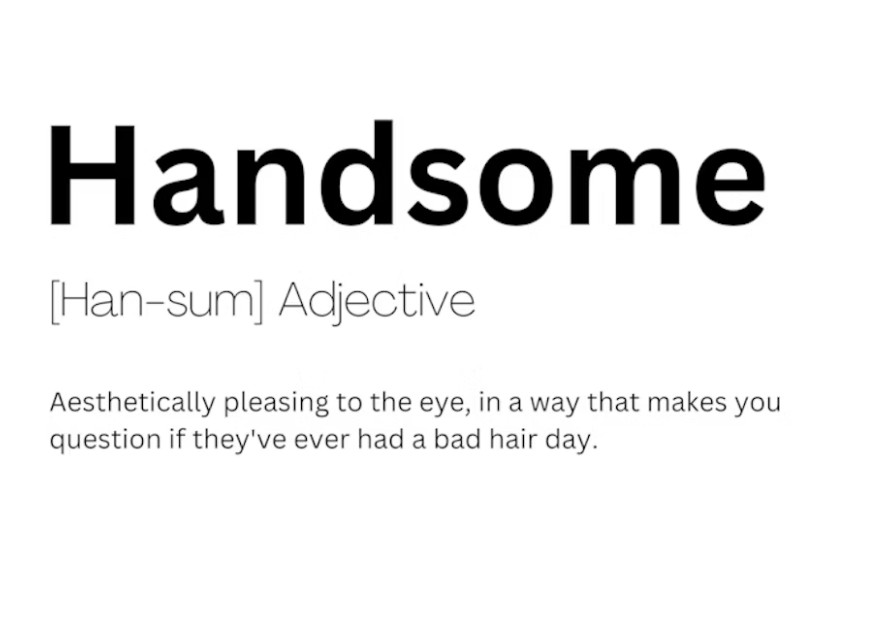Those of us who are not cut out to be supermodels may well agree with the old English proverb that ‘handsome is as handsome does’ (which means ‘a person should be judged by their actions, not their appearance’). This seems to be a theme that proverbs harp on about. Don’t judge a book by its cover. Beauty is only skin deep. Maybe beautiful people are too busy preening themselves to make up proverbs.
What, though, of the word handsome? The hand- is, as you might expect, the thing on the end of your arm. In the mid-fifteenth century, the word meant ‘easy to hold or use’. By the middle of the sixteenth century, it had taken on the meanings of ‘handy, convenient’, ‘appropriate’ and ‘clever, graceful’. By the time Shakespeare was writing, at the end of the sixteenth century, it had also acquired its usual modern meaning of ‘beautiful, attractive’, although the restriction of its use almost exclusively to men seems to be a twentieth century development.
The -some suffix was, in Old English, –sum and was used for forming adjectives from nouns and adjectives. Very few of the Old English words using this suffix have survived, but one of them also means ‘attractive’: winsome. This rather literary word has sugary, sentimental overtones, as in the 1792 poem by the Scottish poet Robert Burns: My wife’s a winsome wee thing. Burns had a reputation as a hard drinker and a womaniser, so perhaps this was written to get himself out of the doghouse after a particularly riotous weekend.
Middle English produced some ‘-some’s, some of which disappeared (friendsome, lustsome), but some of which survived (cumbersome, loathsome, wholesome). The 1500s gave us such oddities as healthsome and darksome (both now obsolete), but also bequeathed to us the current words awesome, quarrelsome and troublesome.



